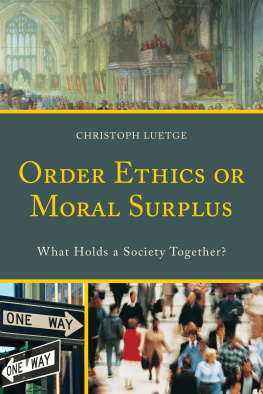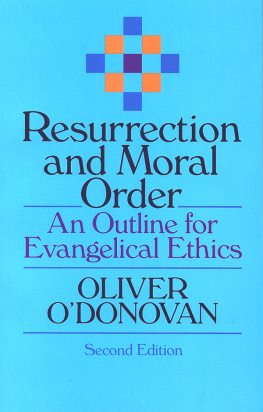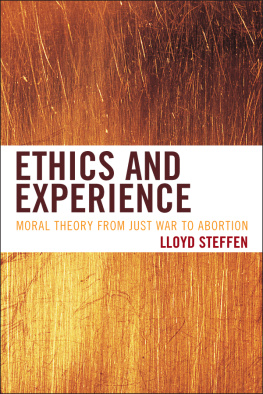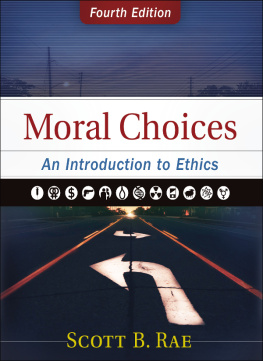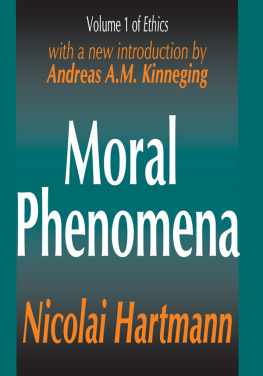Lütge - Order ethics or moral surplus : what holds a society together?
Here you can read online Lütge - Order ethics or moral surplus : what holds a society together? full text of the book (entire story) in english for free. Download pdf and epub, get meaning, cover and reviews about this ebook. year: 2015, publisher: Lexington Books, genre: Politics. Description of the work, (preface) as well as reviews are available. Best literature library LitArk.com created for fans of good reading and offers a wide selection of genres:
Romance novel
Science fiction
Adventure
Detective
Science
History
Home and family
Prose
Art
Politics
Computer
Non-fiction
Religion
Business
Children
Humor
Choose a favorite category and find really read worthwhile books. Enjoy immersion in the world of imagination, feel the emotions of the characters or learn something new for yourself, make an fascinating discovery.
Order ethics or moral surplus : what holds a society together?: summary, description and annotation
We offer to read an annotation, description, summary or preface (depends on what the author of the book "Order ethics or moral surplus : what holds a society together?" wrote himself). If you haven't found the necessary information about the book — write in the comments, we will try to find it.
Lütge: author's other books
Who wrote Order ethics or moral surplus : what holds a society together?? Find out the surname, the name of the author of the book and a list of all author's works by series.
Order ethics or moral surplus : what holds a society together? — read online for free the complete book (whole text) full work
Below is the text of the book, divided by pages. System saving the place of the last page read, allows you to conveniently read the book "Order ethics or moral surplus : what holds a society together?" online for free, without having to search again every time where you left off. Put a bookmark, and you can go to the page where you finished reading at any time.
Font size:
Interval:
Bookmark:
Order Ethics or Moral Surplus
Order Ethics or Moral Surplus
What Holds a Society Together?
Christoph Luetge
LEXINGTON BOOKS
Lanham Boulder New York London
Published by Lexington Books
An imprint of The Rowman & Littlefield Publishing Group, Inc.
4501 Forbes Boulevard, Suite 200, Lanham, Maryland 20706
www.rowman.com
Unit A, Whitacre Mews, 26-34 Stannary Street, London SE11 4AB
Copyright 2015 by Lexington Books
All rights reserved. No part of this book may be reproduced in any form or by any electronic or mechanical means, including information storage and retrieval systems, without written permission from the publisher, except by a reviewer who may quote passages in a review.
British Library Cataloguing in Publication Information Available
Library of Congress Cataloging-in-Publication Data
Luetge, Christoph, 1969
Order ethics or moral surplus : what holds a society together? / Christoph Luetge.
pages cm
Includes bibliographical references and index.
ISBN 978-0-7391-9867-4 (cloth : alk. paper) -- ISBN 978-0-7391-9868-1 (electronic)
1. Social ethics. 2. Political science--Philosophy I. Title.
HM665.L84 2015
170--dc23
2014048576
 TM The paper used in this publication meets the minimum requirements of American National Standard for Information Sciences Permanence of Paper for Printed Library Materials, ANSI/NISO Z39.48-1992.
TM The paper used in this publication meets the minimum requirements of American National Standard for Information Sciences Permanence of Paper for Printed Library Materials, ANSI/NISO Z39.48-1992.
Printed in the United States of America
To Lt. Walter Papendick (18961918)
of the Second Royal Prussian Foot Guards,
who died for the old order
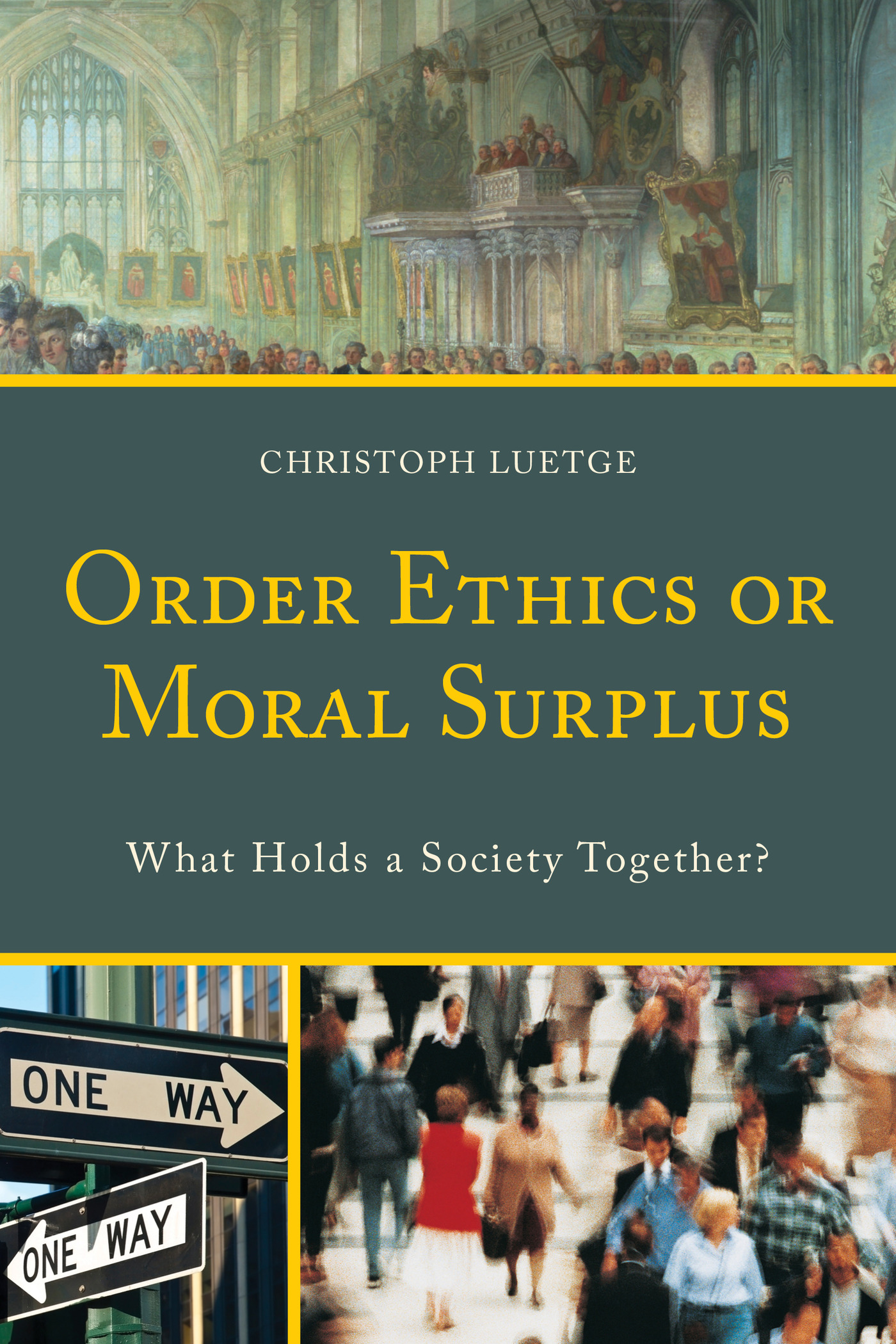
In 1994, when attending the European Forum Alpbach, I asked Nobel laureate James M. Buchanan (19192013), whether he found it sufficient that the citizens of a society simply stuck to the rules. He hesitated for a moment, and then gave the terse reply: No.
This answer, it seemed to me, required further elaboration. It consequently led me to the primary concern of the present work, which may be formulated as follows: What skills or traits do the members of a modern society require in the era of globalization in order for their society to remain stable?
Some further explanation is necessary here. To begin with, I make the assumption that no demands are necessary for the individuals systemic compliance with the institutionally anchored, sanction-based rules of a society. This is already ensured by the individuals self-interest. By contrast, however, many theorists believe that members of society not only need to maintain the rules, but meet other preconditions as well or what I call moral surpluses. I doubt, however, on the one hand, that these surplus values are necessary for social stability and, on the other, that they can be presupposed systematically under the conditions of globalization.
Chapter 1 first deals with the phenomenon of globalization from a philosophical point of view based on the approaches of Otfried Hffe and John Rawls. Both already hint at the basic theme of this book, as each assumes that there are anthropological conditions of social stabilityeven under conditions of globalizationthat must be normatively stipulated.
Chapter 2 lays out the systematic foundations of my ethical conception: Under conditions of globalization, the approach of order ethics appears to be promising, because it is based on the logic of advantages and incentives rather than anthropological preconditions. I deduce order ethics in a novel way with the help of a thought experiment. This concept is explicated, defended against some standard objections, and elaborated in greater methodological detail.
Chapters 3 to 5 form the books main part. Here, I examine eight proposed candidates for moral surplus values. I start with strong precondition-based requirements and conclude with approaches that make increasingly fewer and weaker demands on the actors.
Chapter 6 offers a summary and defines its own approach. Since none of the recommended surplus values appear to be viable, the question of alternatives must be raised. The proposed alternative of order ethics is not based on anthropological findings, features, or surplus values, but rather on the preconditions of situations. Three minimum preconditions can be identified that are required to provide sufficient stability for a modern society under the conditions of globalization: sociality, an ability to communicate, and an ability to invest. These three conditions have the decisive advantage over the discussed candidates insofar as they do not need or expect individuals to break with the logic of advantages and incentives.
I would like to thank James M. Buchanan, Ken Binmore, David Gauthier, Jrgen Habermas, and Karl Homann for their encouragement and for the works that inspired much of this book. Christopher Reid has done an excellent job translating the manuscript. Many thanks go to Jana Hodges-Kluck, Natalie Mandziuk, and Kari Waters at Lexington Books as well as to an anonymous reviewer for their work and valuable comments. In preparing the final version, Benjamin Gromann-Hensel, Christian Hamann, and Wally Eichler have been very helpful.
The Challenge of Globalization to Philosophy
This book aims to discover the normative foundations of modern societies under the conditions of globalization. This line of inquiry has multiple aspects, which must be addressed separately.
First, it is necessary to explain what is to be understood by a societys normative foundations. For our purposes, this includes the capabilities and/or qualities of the citizens belonging to these societies. In the theoretical approaches that will be discussed, these capabilities and/or qualities are taken to be necessary for allowing a society to become andtoremain stable. Thus these capabilities and/or qualities are typically required in a normative sense, independent of their actual existence or efficacy.
Second, this book will center on modern societies. These kinds of societies are categorically distinct in their structure from pre-modern societies. Modern societies are anonymous societies, characterized by a high degree of pluralism, and do not play zero-sum games. The general focus is on modern societies that have democratic forms of governance. This implies that the effective political control of the governmentclosely following John Rawls (1999, 2)is through elections. According to Karl Popper (1945/1950), it is the fundamental achievement of democracy that governments can be replaced without bloodshed. To ensure this, certain supporting democratic institutions are essential, whose existence and, to a large degree, efficacy are required for the normal operation of the democratic societies presented in the theories of this book. This normal operation in any case already makes the question about normative foundations, without the additional problems associated with the processes of globalization, highly contentious.
The effects of the processes of globalization are the second element to the books basic question. Under globalization, I understand with Otfried Hffe (1999/2002, 13) the increase and intensification of worldwide social relations, which furthermore have a far-reaching impact on society, economy, politics, and culture. These effects are discussed in many disciplines, especially in sociology, economics, political science, social psychology, and cultural studies. Does philosophy have anything to contribute here? In my view, philosophy cannot afford to ignore the impact of globalization processes, or dismiss them as incidental developments.
Next pageFont size:
Interval:
Bookmark:
Similar books «Order ethics or moral surplus : what holds a society together?»
Look at similar books to Order ethics or moral surplus : what holds a society together?. We have selected literature similar in name and meaning in the hope of providing readers with more options to find new, interesting, not yet read works.
Discussion, reviews of the book Order ethics or moral surplus : what holds a society together? and just readers' own opinions. Leave your comments, write what you think about the work, its meaning or the main characters. Specify what exactly you liked and what you didn't like, and why you think so.

